阿姆斯特丹海港船屋
Harbour Building Amsterdam / Margulis Moorman Architects

来自建筑事务所的描述:这座位于荷兰阿姆斯特丹海港边的建筑是一家帆船俱乐部。IJburg水上运动俱乐部(WVIJ)被批准在游艇港开发区建设设施。该场地俯瞰着Markermeer湖。
Text deion provided by the architects. Harbour Building for a Sailing Club, Amsterdam, the Netherlands. Within a newly created part of the city of Amsterdam, IJburg, the Water Sport Club IJburg (WVIJ) was granted rights to build facilities on a small parcel of land adjacent to its community yacht harbour. The site overlooks the Markermeer lake (former Zuider Zee).

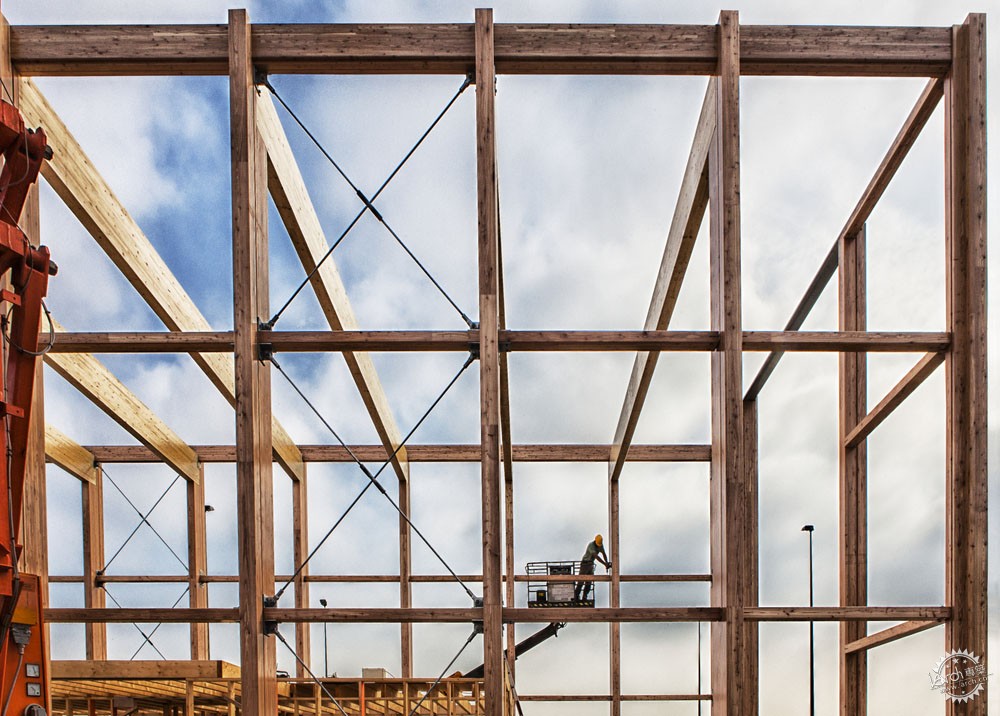
在整个设计过程中,建筑师与俱乐部成员一起进行了大量的研讨,确保这座建筑能最大限度地提高用户参与度,调动项目的积极性。研讨会之后,建筑师发现俱乐部成员十分重视社交联系,于是设计干脆采用了能将空间最大化利用的棚架构作为建筑的基础。
The architects held extensive workshops with members throughout the design process to insure a maximum of user participation and enthusiasm for the project. The most important finding was that many members value social contact while doing small maintenance jobs on their boats. The principle of a simple container (shed) with a maximum of multi-purpose space became the basis for the design.

该建筑与毗邻港口的水域和北部的Markermeer湖之间加强了联系。建筑物的每层楼,都让人可以感受到与两个水域产生的特定的空间关系。木材是建筑的主要材料,使得建筑与周围环境区别开来,高达九米的落叶松木柱让人联想起港口边高高的桅杆,建筑物中使用的所有落叶松木材都来源于当地。
The building establishes a strong connection between the intimate water of the harbor and the greater Markermeer lake to the North. On each level of the building one experiences a specific spatial relationship with one or both of the two waters. The choice of wood as the primary construction material differentiates the building from its surroundings. Nine meter larch columns refer back to the tall masts in the adjacent harbour. All larch used in the building was locally sourced.
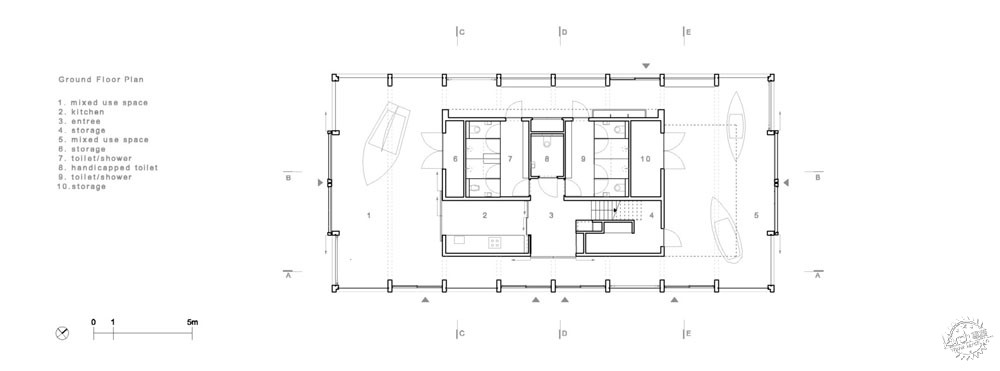


建筑的规划要求很大程度上需要考虑季节的变换。水上运动俱乐部在冬季活动较少,需要的空间因此较小。相比之下,在温暖的月份,俱乐部需要更大的空间来举办更多的活动。“体量中的体量”这一策略将隔热的空间与固定的功能设计区分开来,并利用单层玻璃提供更大更灵活的空间。
The rhythm of the seasons largely dictates the building's programmatic requirements. A water sport club is by definition less active in winter and requires less space. In contrast, during the warmer months, a bigger building is needed to accommodate more activities. The “volume inside a volume" strategy differentiates fully insulated/climatized spaces with fixed programmatic designations and larger more flexible half-climate spaces behind single glazing.
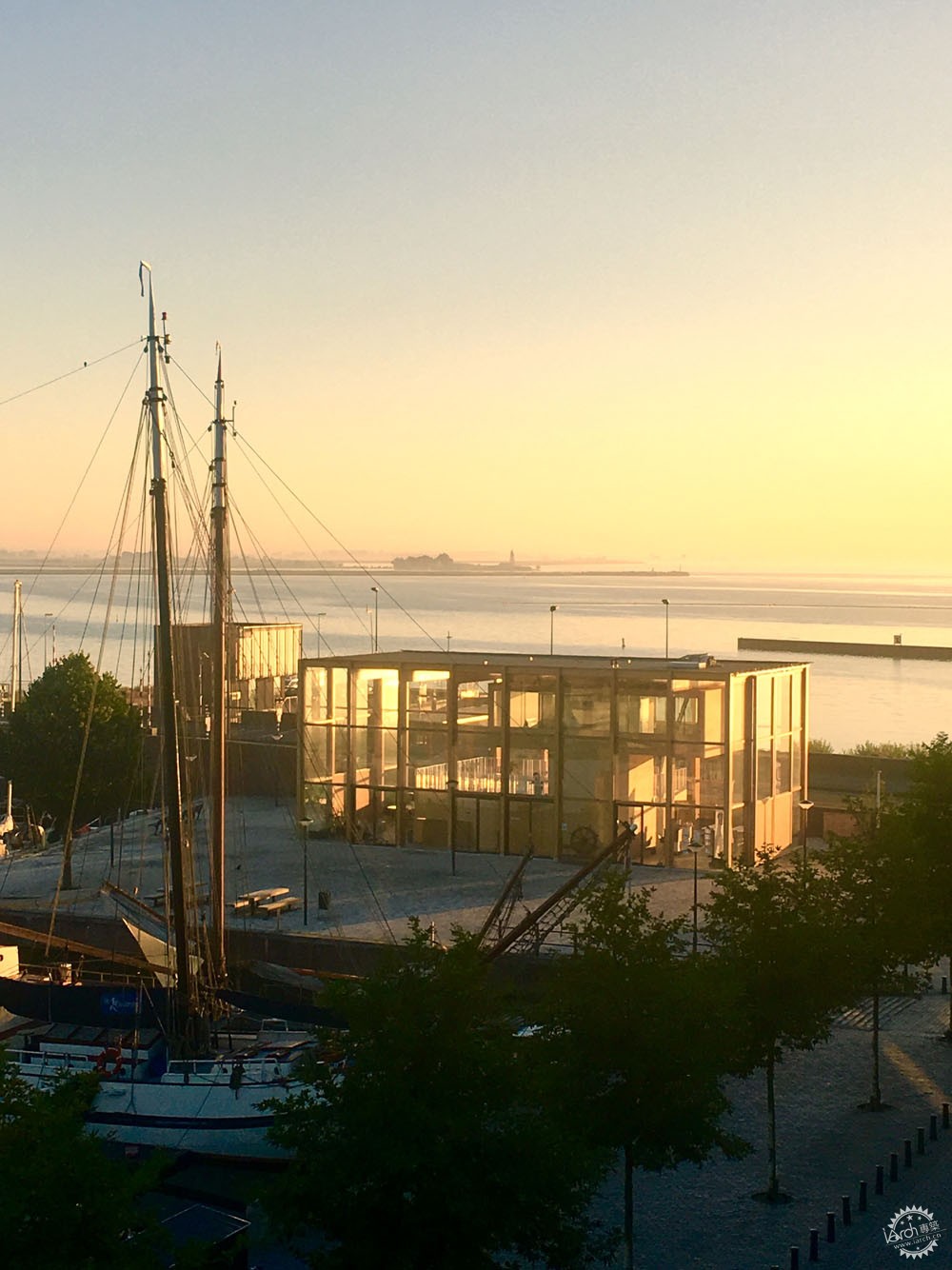
外部的单层玻璃体量由七个层状落叶松门框组成。9米高的落叶松柱也可作为大型单层玻璃板的窗框,凸显细节设计。落叶松角柱与钢屋顶梁相结合,在末端立面处形成最大开口。两端的木质滑动门可以在不降低小船桅杆的情况直接将船回收。二楼会议室悬挂在70厘米高的屋顶横梁上,避免影响下面自由空间的使用。项目预算有限,这座建筑物的造价为460000美元。
The outer single glazed volume consists of seven laminated larch portal frames. Nine-meter high larch columns also serve as window frames for large, single glazed panels to achieve a minimum detail solution. Larch corner columns combined with steel roof beams create maximum openings at the end facades. Full height wooden sliding doors at both ends allow small boats to be brought in without lowering their masts. The second floor meeting room is literally hung from 70 centimeter high roof beams to avoid columns in the free spaces below. The building was realized in spite of a limited construction budget of 460,000 dollars.



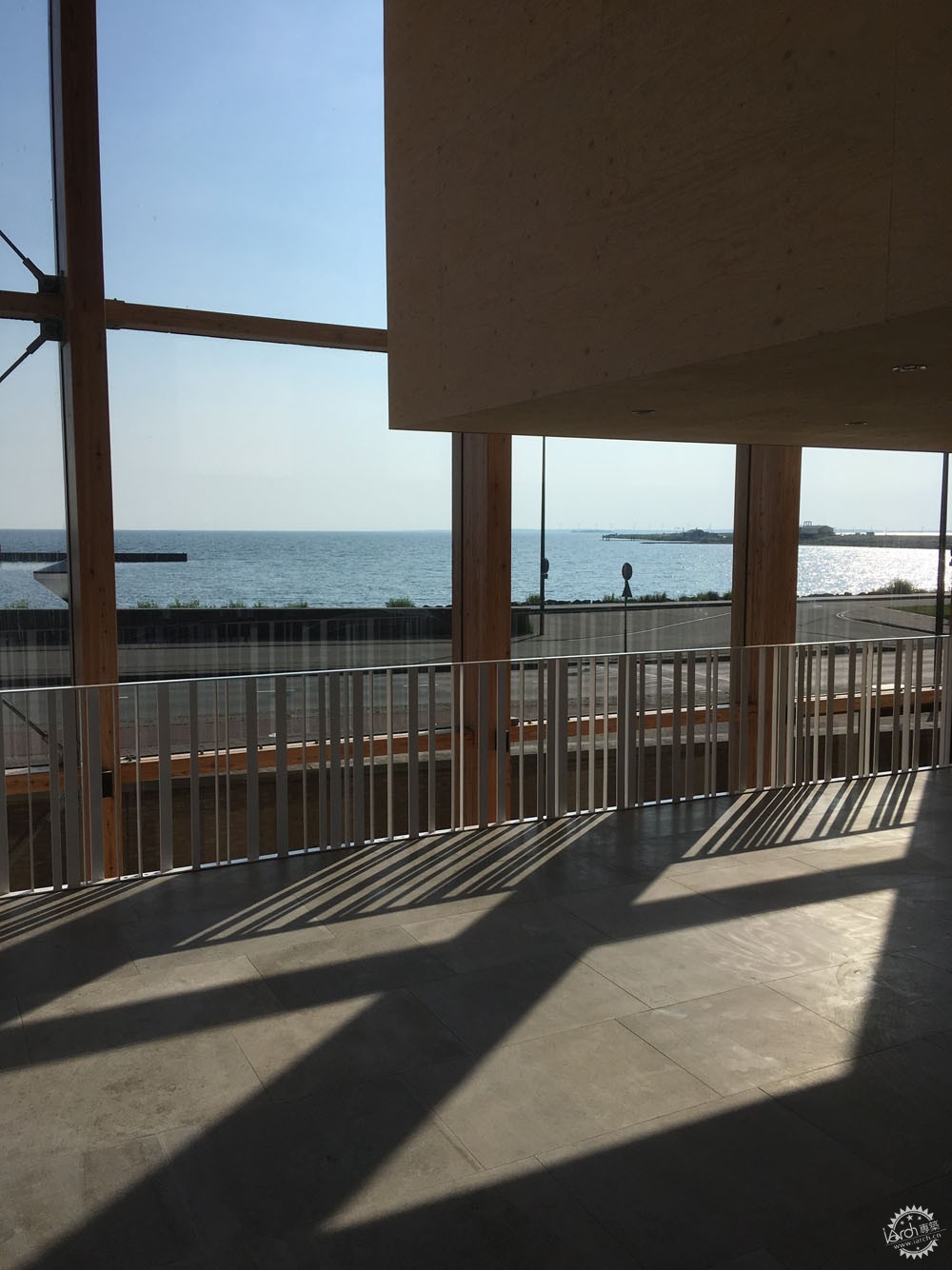

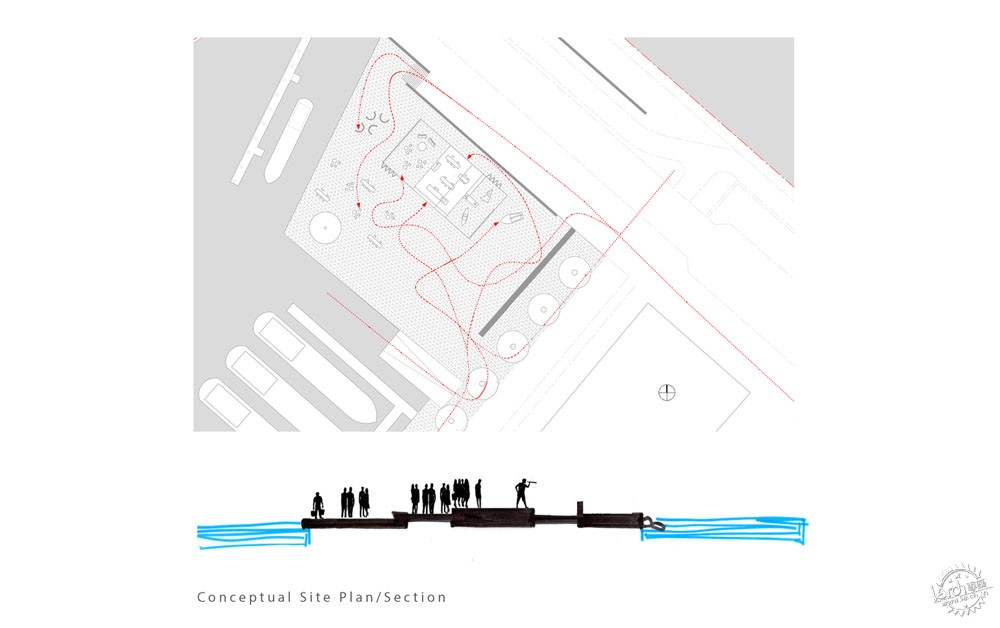



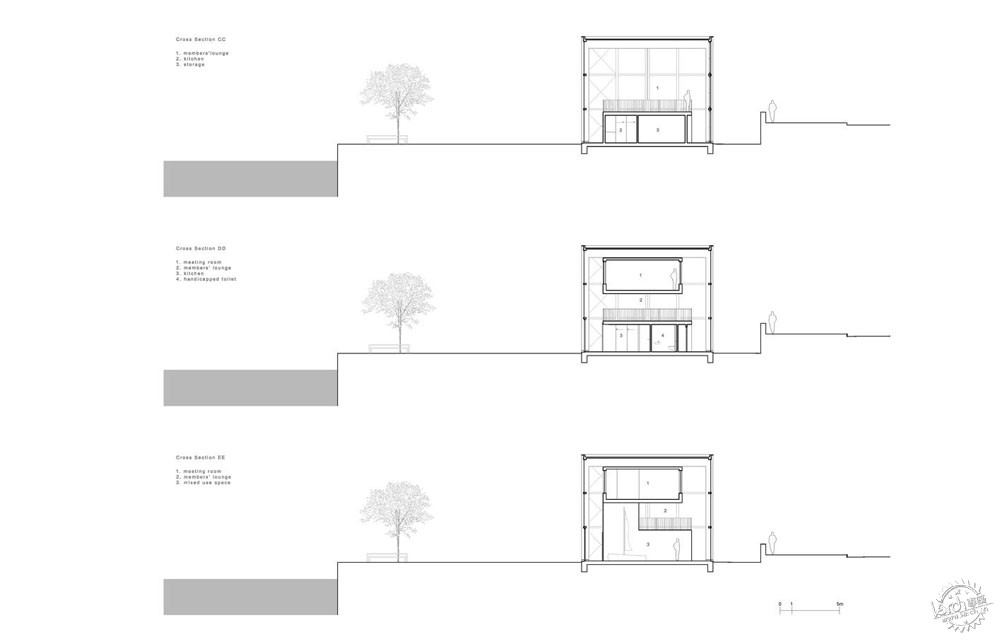
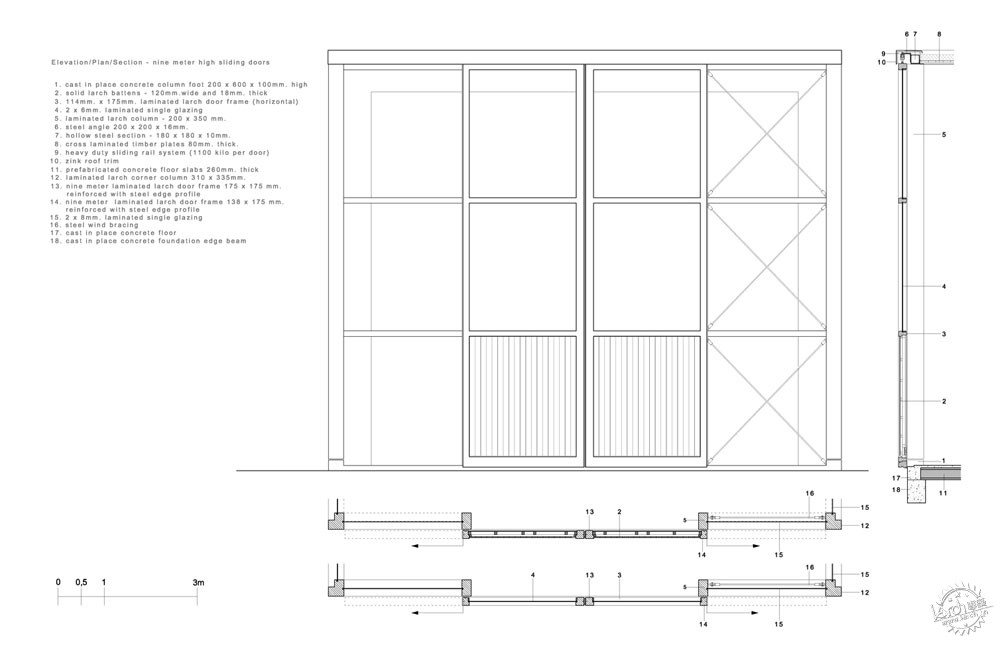

建筑设计:Margulis Moormann Architects
项目地点:荷兰,阿姆斯特丹
项目类别:船屋
首席建筑师:Beth Margulis, Floor Moormann
设计团队:Luuc Sonke, Lorien Beijaert, Peer Frantzen, Mark Eckert
项目面积:400.0 ㎡
项目年份:2018年
制造商:De Groot Vroomshoop, Alcoa, Autodesk
客户:Watersportvereniging Ijburg
结构工程:Pieters Bouw Techniek Amsterdam
顾问:Nieman Engineers
木结构工程:De Groot Vroomshoop
推拉门品牌:Timmerfabriek Bos
Architects: Margulis Moormann Architects
Location: Amsterdam, The Netherlands
Category: Boathouse
Lead Architects: Beth Margulis, Floor Moormann
Design Team: Luuc Sonke, Lorien Beijaert, Peer Frantzen, Mark Eckert
Area: 400.0 ㎡
Project Year: 2018
Manufacturers: De Groot Vroomshoop, Alcoa, Autodesk
Clients: Watersportvereniging Ijburg
Engineering: Pieters Bouw Techniek Amsterdam
Consultants: Nieman Engineers
Laminated wood construction: De Groot Vroomshoop
Nine meter larch sliding doors: Timmerfabriek Bos